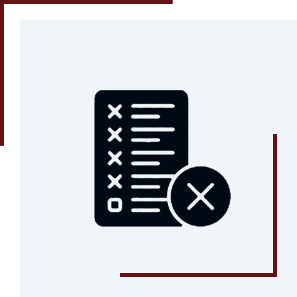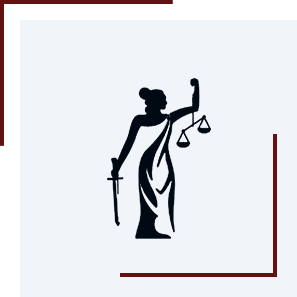What can I help with?

I need to know common mistakes to avoid
Although going through a divorce can be a challenging experience, it’s important to avoid making certain errors that can complicate an already complicated situation. They include:
- Not keeping emotions in check: Divorce can be a very emotional and stressful experience. It’s important to try to keep your emotions in check and avoid making any impulsive or hasty decisions.
- Not being realistic: It’s important to have realistic expectations about the divorce process and the outcome. I can help you to understand what is likely to happen and what is possible, but it’s important to remember that the court’s decision may not be exactly what you want.
- Not considering the long-term: Divorce can have long-term consequences, such as affecting your credit score, your ability to buy a house, and your relationship with your children. It’s important to keep these long-term consequences in mind when making decisions about divorce.

How do I prepare for a consultation with a paralegal?
As you prepare for your initial meeting, try to take as many of the following steps as possible:
Gather important documents:
Gather all relevant documents such as marriage certificates, prenuptial agreements, financial records (e.g. bank statements, tax returns, pay stubs), and any other documents that may be relevant to your case (e.g. a custody agreement).
Make a list of questions:
Prepare a list of questions you want to ask during the first meeting. This can include questions about the process, the paralegal’s experience, and any concerns you have about the case.
Be honest:
Be honest about your situation and any concerns you have. This will help me to better understand your case and how I can help you with the divorce process.
Be prepared to discuss finances:
Be prepared to discuss your income, expenses, assets, and debts.
Consider your goals:
Before the first meeting, think about what you want to accomplish with the divorce. This can include things like custody arrangements, property division, and alimony.

I need to learn more about what freelance Paralegals do
In a nutshell:
Freelance paralegals are entrepreneurs who own their own businesses. Typically, a freelance paralegal is an individual who possesses good business acumen and is highly motivated and skilled. In my business, I believe my paralegal services not only enhance client satisfaction, but also provide a sense of comfort for clients’ knowing their needs are being met professionally, efficiently, and cost-effectively. Some common tasks freelance paralegals perform include: e-filing documents, legal research, reviewing and summarizing documents, drafting pleadings, contracts, or other legal documents, organizing document productions, communicating with clients, scheduling hearings, interviewing witnesses, trial preparation, maintaining/updating dockets and calendars, propounding and/or answering written discovery, ensuring clients provide critical documents and/or information for their legal matter, completing appropriate legal forms, and ultimately moving cases through to completion.



